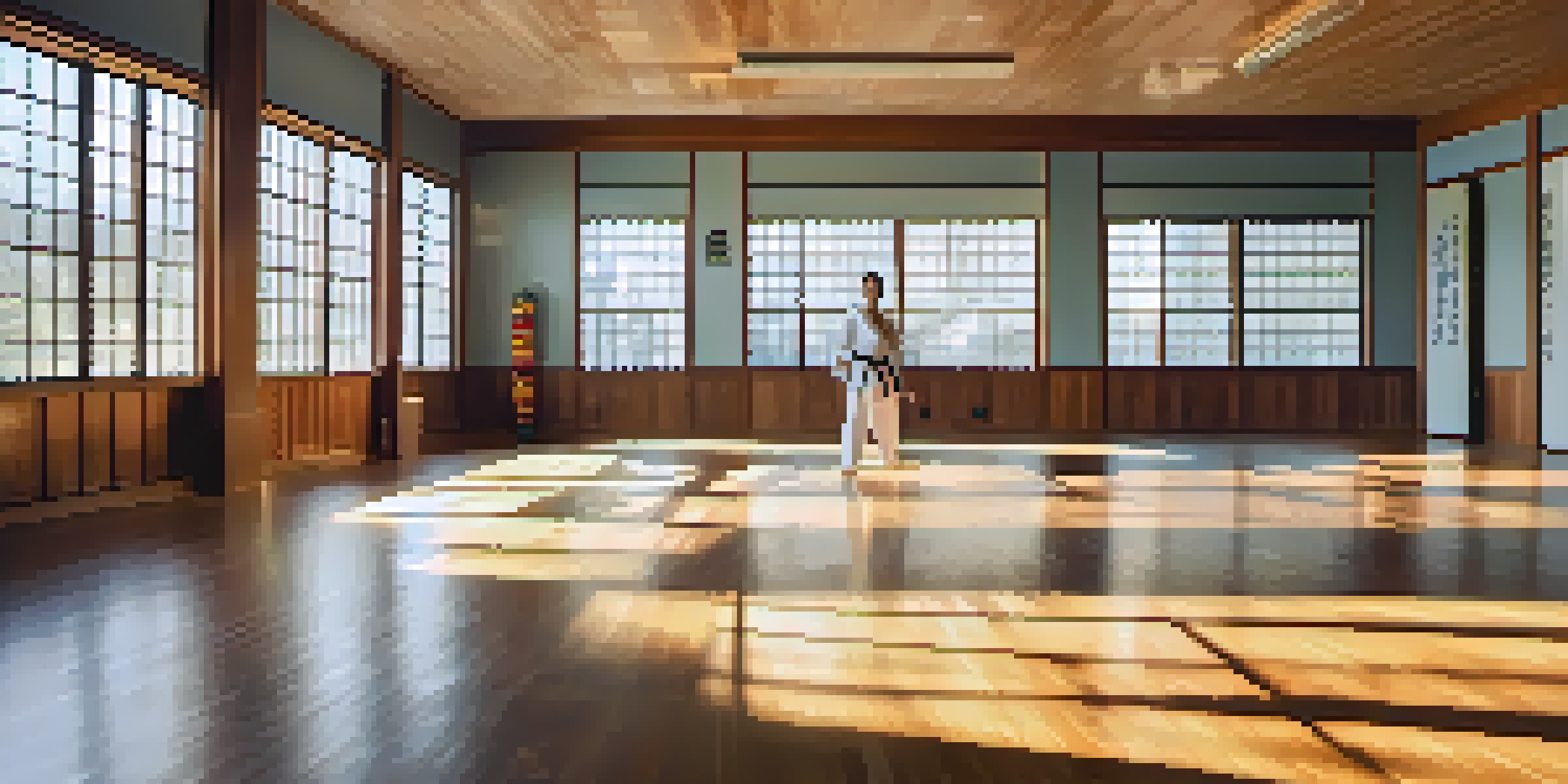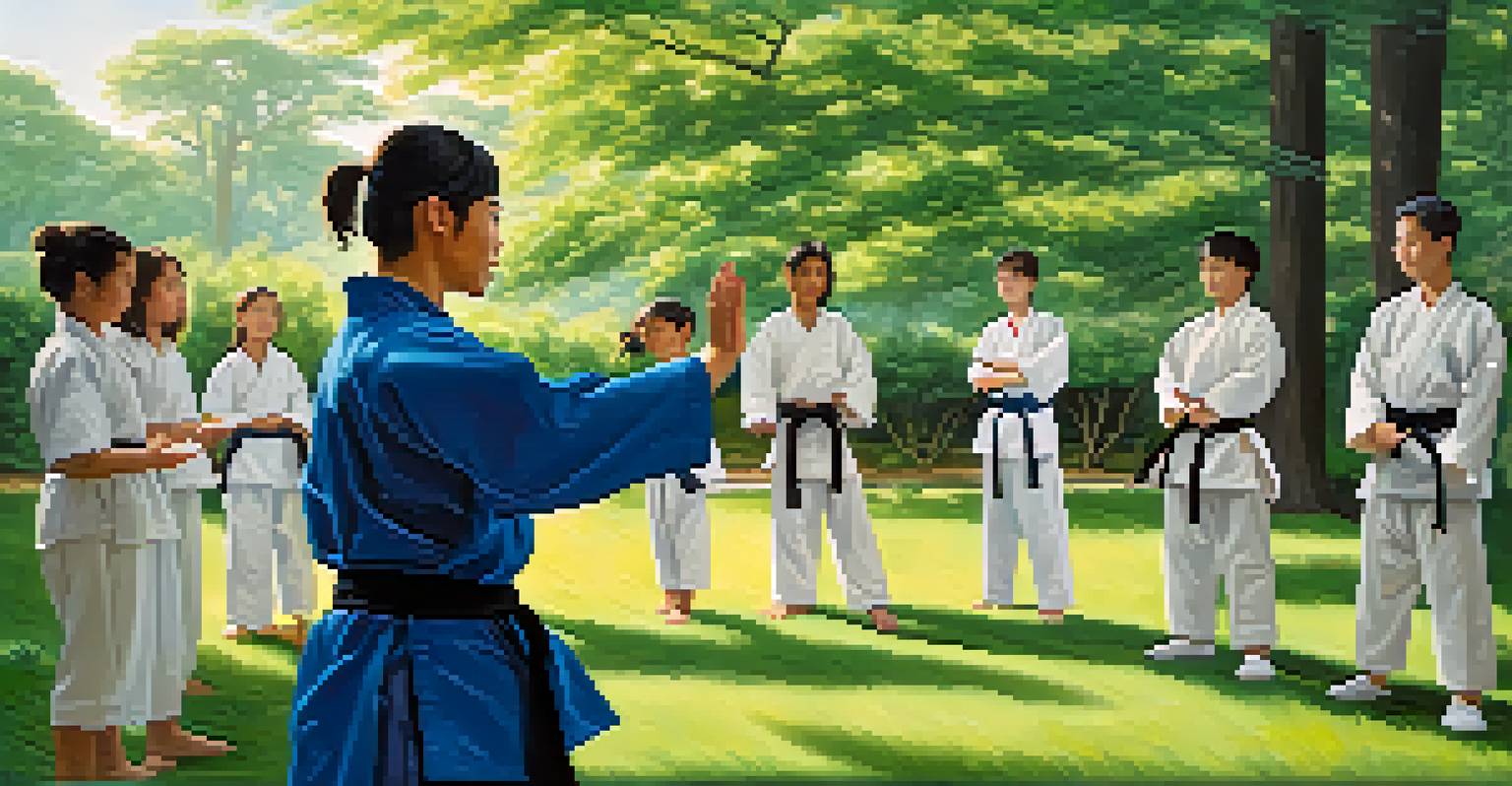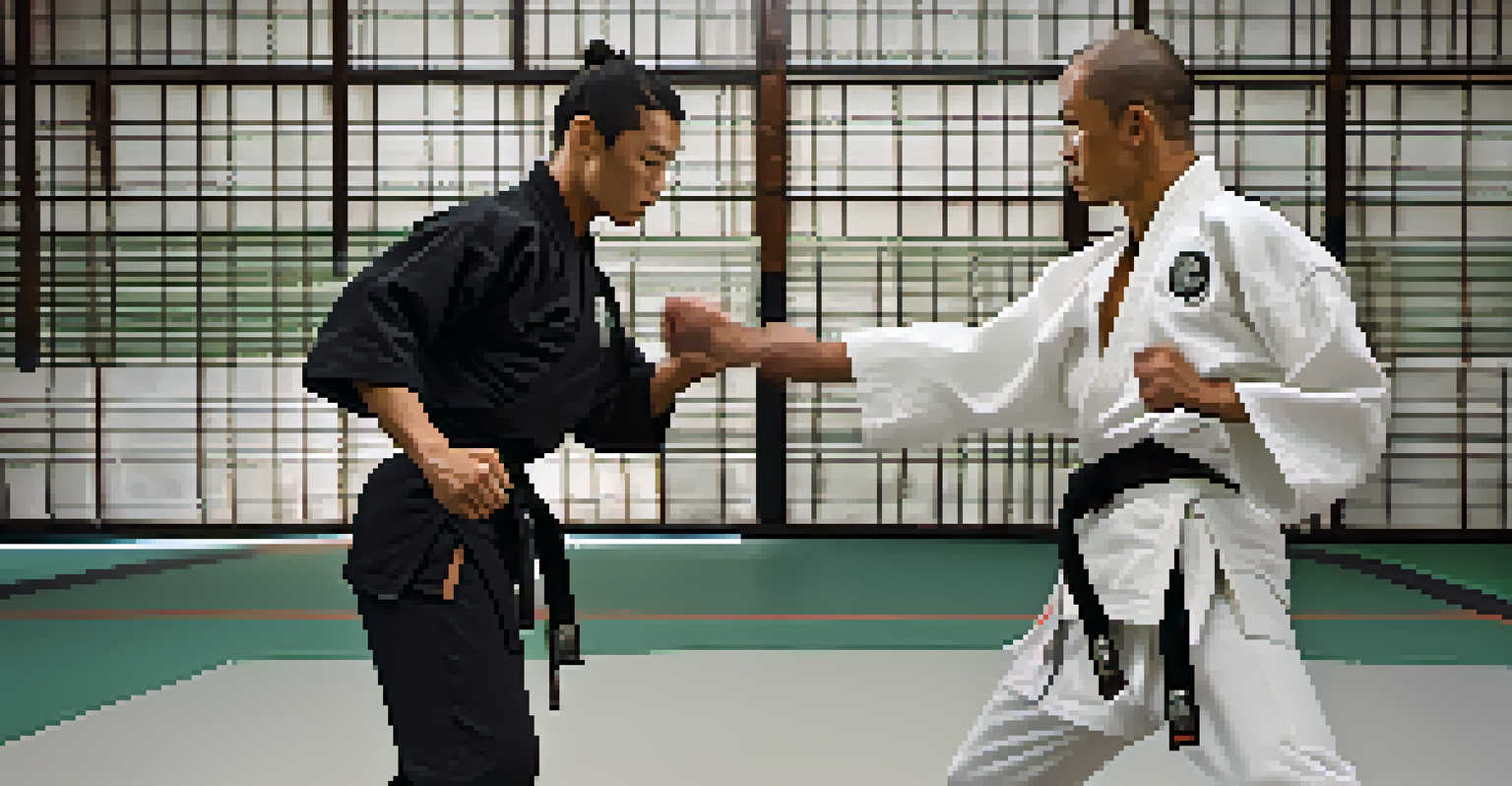The Importance of Empathy in Martial Arts and Conflict Resolution

Defining Empathy: The Heart of Conflict Resolution
Empathy, at its core, is the ability to understand and share the feelings of others. It allows individuals to step into someone else's shoes and see the world from their perspective. In the realm of conflict resolution, empathy acts as a bridge, fostering communication and understanding, which are crucial for finding common ground.
Empathy is about finding echoes of another person in yourself.
By practicing empathy, martial artists can not only become better fighters but also better friends and community members. This understanding helps diffuse tensions before they escalate into conflicts. When both parties feel heard and validated, the chances of achieving a peaceful resolution increase significantly.
For example, during a sparring session, a martial artist who recognizes their partner's discomfort can adjust their approach, promoting a safe learning environment. This practice of empathy not only enhances skills but also builds trust and respect among practitioners.
Empathy in Martial Arts: More Than Just Fighting
While martial arts often emphasize strength and technique, the underlying principles of respect and understanding are equally important. Many martial arts philosophies teach that true strength lies in self-control and compassion. This is where empathy comes into play, as it encourages practitioners to connect with their opponents on a human level.

Instructors often emphasize the importance of understanding your opponent's intentions and emotions. This not only helps in anticipating moves but also in creating a respectful sparring environment. When students learn to empathize, they develop a more profound appreciation for the art, focusing on growth rather than competition.
Empathy Enhances Conflict Resolution
Practicing empathy fosters understanding and communication, crucial for resolving conflicts peacefully.
Moreover, this empathetic approach extends beyond the dojo. Practitioners who cultivate empathy are more likely to carry those values into their daily lives, positively impacting their communities and relationships.
The Role of Empathy in Conflict De-escalation
In any conflict, emotions can run high, often clouding judgment and escalating tensions. Empathy plays a crucial role in de-escalating these situations by promoting understanding and calmness. When individuals take a moment to consider the feelings of others, it becomes easier to diffuse anger and frustration.
The greatest gift of human beings is that we have the power of empathy.
Imagine a heated argument between two friends. If one takes a step back to acknowledge the other's feelings, it can lead to a more productive conversation. This shift in perspective not only helps resolve the conflict but also strengthens the relationship.
In martial arts, the ability to de-escalate conflict is invaluable. Practitioners trained in empathy are better equipped to handle disputes, both on and off the mat, emphasizing resolution over aggression.
Empathy as a Training Tool in Martial Arts
Integrating empathy into martial arts training can transform the way students interact with each other. By incorporating empathy exercises, instructors can foster a supportive environment where students feel safe to express themselves and learn from their mistakes. This approach not only improves technical skills but also enhances emotional intelligence.
For instance, role-playing scenarios can be an effective way to teach empathy. Students can practice responding to various situations, learning not only how to react physically but also how to understand and connect with their partners emotionally. This dual focus enriches their martial arts journey.
Empathy Cultivates Stronger Communities
Martial artists who develop empathy not only improve their skills but also positively impact their relationships and communities.
In the long run, these empathetic training methods produce well-rounded martial artists who are not just skilled fighters but also compassionate individuals. This holistic approach to training can lead to a more harmonious martial arts community.
Building a Culture of Empathy in Martial Arts Schools
Creating a culture of empathy within martial arts schools requires intentional effort from instructors and students alike. By prioritizing empathy in their teaching, instructors can set the tone for a supportive and understanding environment. This cultural shift can lead to increased camaraderie and respect among practitioners.
Schools can implement initiatives such as empathy workshops, discussions, or community service projects. These activities not only build bonds among students but also reinforce the values of compassion and understanding. In turn, students are likely to carry these values into their training and everyday lives.
Ultimately, fostering a culture of empathy is about creating a space where everyone feels valued and respected. This positive environment contributes to personal growth and collective success, making martial arts a powerful tool for character development.
Empathy and the Future of Martial Arts
As the world evolves, the role of empathy in martial arts will only become more vital. With increasing awareness of mental health and emotional well-being, the martial arts community has an opportunity to lead by example. By embracing empathy, practitioners can advocate for a more compassionate approach to conflict resolution.
This future-forward perspective positions martial arts as not just a means of physical self-defense, but also as a practice that nurtures emotional resilience and interpersonal skills. As students learn to navigate their emotions and those of others, they become better equipped to handle life's challenges.
Empathy's Role in Personal Growth
Integrating empathy into martial arts training leads to emotional intelligence and well-rounded individuals, benefiting both the dojo and everyday life.
Ultimately, by prioritizing empathy, the martial arts community can contribute to a more peaceful society. A world where understanding and compassion triumph over aggression and conflict is a world worth striving for.
Real-Life Applications of Empathy Beyond the Mat
The lessons learned through martial arts and the cultivation of empathy extend far beyond the dojo. Individuals who practice empathy are often more effective communicators and problem solvers in their personal and professional lives. This ability to connect with others fosters stronger relationships and collaboration.
Consider a workplace scenario where team members face a challenging project. A leader who demonstrates empathy can create a supportive atmosphere, empowering team members to share their ideas and concerns freely. This inclusive approach not only leads to better outcomes but also enhances team morale.

In essence, the skills developed through martial arts training—self-awareness, emotional regulation, and empathy—can be transformative in everyday interactions. By applying these principles, individuals contribute to a culture of understanding, making the world a better place for everyone.